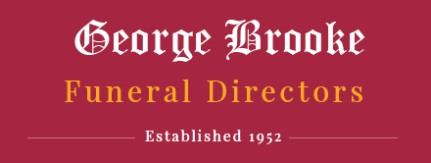Registrar
How a death is registered
The death must be registered at the local office of Registration of Births, Deaths and Marriages in the district where the death occurred, as soon as possible, usually within five days of the death (unless the Registrar extends this period). If the death has been referred to the Coroner, the procedure is slightly different – we will advise you concerning this.
Our local register office is based in the Town Hall, Dewsbury and the telephone number is: 01924 324733
Important information
Regulations state that only certain people can register a death with the Registrar of Births, Deaths and Marriages. Deaths in private residence, hospitals, nursing homes, rest homes, etc.
- A relative of the deceased who was present at the time of death
- A relative of the deceased, in attendance during the last illness
- A relative of the deceased residing in the same local district
- A person present at the time of death
- The occupier, i.e. the Matron or Officer in charge of a nursing home or rest home, provided they knew of the illness before the death
- The person causing the disposal of the body i.e. an executor, the solicitor or similar
Regulations state that only certain people can register a death with the Registrar of Births, Deaths and Marriages. Deaths in private residence, hospitals, nursing homes, rest homes, etc.
- The medical certificate of the cause of death
- The deceased’s NHS number, if possible
- Any forms given to you if the death has been referred to the Coroner.
- The deceased’s Birth certificate
- The date and place of death
- The deceased’s last (usual) address
- The deceased’s first names and surname (and the maiden name if applicable)
- The deceased’s date and place of birth
- The deceased’s occupation and the name and occupation of husband (if applicable)
- Whether the deceased was getting a pension or allowance from public funds
- If the deceased was married, the date of birth of the surviving widow or widower
This is a free service offered by the Registrar to hand in government related documents. If you have booked a Tell Us Once appointment, please bring the following to the appointment:
- The deceased’s passport if a passport was held and still valid
- The deceased’s driving licence and national insurance number
- The details of the date of admission if the deceased died in a hospital or hospice
- The surviving spouse’s national insurance number (if applicable)
- The deceased’s blue badge or radar key (if applicable)
Certificate for Burial or Cremation (known as the Green Form) unless the Coroner has given you an order for Burial or a Certificate for Cremation. The Funeral Director will need whichever form you are given so that the funeral can be held.
- You will also receive a Certificate of Registration of Death.
- This is for Social Security purposes only.
- You will be able to purchase a Certified Copy of an Entry Certificate, which is needed for any pension claims, insurance policies and financial matters.
- Normally three or four copies would be sufficient.
What You Need to Know in Times of Bereavement
As soon as possible inform the doctor that death has occurred. He/she may write out the Medical Certificate of Death when he/she visits the house, or may request you attend the surgery for this purpose.
When death happens in a hospital the procedure is very similar. Apply to the hospital for the Medical Certificate of Death and not your family doctor.
When death happens in hospital the procedure is very similar. Apply to the hospital for the Medical Certificate of Death and not your family doctor.
